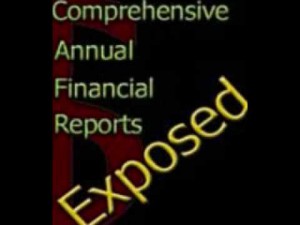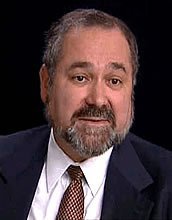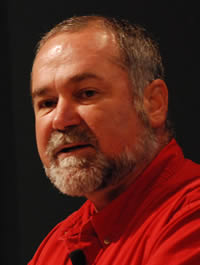Colonel Tony Pfaff, USA is a Foreign Area Officer for the Middle East and North Africa, currently serving as the Senior Military and Army Advisor to the Department of State. Colonel Pfaff began his military career as an Infantry officer and first served as platoon leader and company executive officer in the 82nd Airborne Division, with whom he deployed to Operations DESERT SHIELD and DESERT STORM. He then served as a company commander and battalion operations officer in the 1st Armored Division, with which he deployed to Operation ABLE SENTRY in the former Yugoslav Republic of Macedonia. Colonel Pfaff has also served on the faculty at West Point and as the Senior Intelligence Officer for the Joint Staff’s Iraq Intelligence Working Group. He has served twice in Iraq, once as the Deputy J2 for a Joint Special Operations Task Force, and as the Senior Military Advisor for the Civilian Police Assistance Training Program. Most recently, he served as the Defense Attaché in Baghdad and prior to that as the Chief of International Military Affair for Army Central Command and as the Defense Attache Kuwait. He also served as a consultant for the Independent Panel to Review Department of Defense Detention Procedures headed by former Secretary of Defense James Schlesinger and contributed to the ethics section of the Army and Marine Corps counterinsurgency field manual. Colonel Pfaff has a bachelor’s degree in Philosophy and Economics from Washington and Lee University, a master’s degree in Philosophy from Stanford University, a master’s in National Resource Strategy from the Industrial College of the Armed Forces, and a doctorate in Philosophy from Georgetown University.
“Risk, Military Ethics, and Irregular Warfare,” Foreign Policy Research Institute, E-Note, December, 2012, http://www.fpri.org/enotes/2011/201112.pfaff.irregularwarfare.html
“Aligning Means and Ends: Towards a New Way of War,” Military Review, September-October, 2011, pp. 78-83
“Ethics in Dangerous Situations,” with Ted Reich, Walter Redman, and Michael Hurley, in Patrick Sweeney and Michael Matthews, Leadership in Dangerous Situations (Naval Institute Press, 2011) pp. 121-138.
Resolving Ethical Challenges in an Era of Persistent Conflict (Strategic Studies Institute, March 29, 2011)
“Bungee Jumping Off the Moral High-ground: The Ethics of Espionage in the Modern Age,” published in Ethics of Spying: A Reader for the Intelligence Professional, Jan Goldman, ed. (Scarecrow Press, 2009)
Development and Reform of the Iraqi Police Forces (Strategic Studies Institute, January 25, 2008)
“Officership and Character,” in The Future of the Army Profession, Don M. Snider, ed. May 2005
The Ethics of Espionage,” in the Journal of Military Ethics, Vol 3, Issue 1, 2004, pp. 1-15
“Officership: Character, Leadership, and Ethical Decision Making” in Military Review January-February 2003, pp. 66-71.
“Military Ethics in Complex Contingencies,” published in The Future of the Army Profession, 2nd Ed., Don Snider and Lloyd Matthews, eds. (McGraw-Hill, 2002), pp. 409-428
Peacekeeping and the Just War Tradition (Strategic Studies Institute, September 01, 2000)
Army Professionalism, the Military Ethic, and Officership in the 21st Century (Strategic Studies Institute, December 01, 1999)
“Toward an Ethics of Detention and Interrogation: Consent and Limits,” published in Philosophy and Public Policy Quarterly
“Chaos, Complexity, and the Modern Battlefield,” published in Military Review, pp. 83-86
“Developing Commanders for Peace and War,” with Dr. Don Snider, Major John Nagl, in Culture and Command, Strategic Policy Studies 3 published by The Strategic Policy Studies Group of the Britannia Royal Naval College and Exeter University, 2000.
“Homeland Defense and Issues of Civil Military Relations,” in …to insure domestic Tranquility, provide for the common defence… published by Strategic Studies Institute, US Army War College, Strategic Studies Institute, December 2000.With Dr. Don Snider, Major John Nagl,
“Peacekeeping and the Just War Tradition” in Pacem, (Norwegian Military Journal)Issue Nr 2, 2000.






